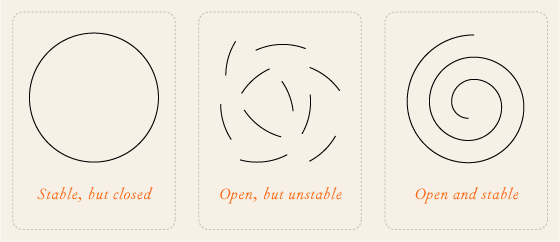Respect is a universal need.
Everyone wants and needs respect.
We need self-respect, and we need respect from others. Many of us are too proudly individualistic to admit it that we need respect from others, but we absolutely need to be respected. Let’s stop pretending otherwise. It’s bad for everyone.
*
Some people have learned to view everything and everyone in terms of power, and this is unfortunate.
Seeing the world through the lens of power invites comparisons, confrontations, competitiveness, defensiveness. A powerful person threatens the power of another.
Respect is different. A respected, respectful person is no threat to anyone. A respectful person gives respect, wins respect and makes respect increase everywhere respect is exchanged.
People with healthy self-respect who are deeply respected by people around them are rarely ruthless power-seekers. But power-seekers often do disrespectful things to gain an advantage or defend a vulnerability, and are more often resented or feared rather than respected.
We are better off understanding each other as respect-seeking beings.
Seeing the world through the lens of respect-seeking makes us more respectful and more respectable.
*
The best kind of respect is who-respect: the respect for who we are as a person.
If we feel that we cannot be respected for who we are, we will seek what-respect: a respect for what category of person we think we are.
*
What-respect, however, cannot substitute for who-respect.
What-respect can alleviate social starvation, but not much more than that.
When our self-respect is mostly what-respect, and whatever respect we get from others is mostly what-respect, we cannot be satisfied with ourselves, with anyone we know or with the world. A diet of too much what-respect and too little who-respect leaves a soul irritable, anxious and resentful.
What-respect is empty calories for the soul.
*
The only thing worse than what-respect is what-disrespect, a withholding of all respect on the basis of what someone is said to be.
Sadly, what-disrespect functions like an appetite suppressant. If you are starving for respect and lose all hope that you will ever get it — or worse, if you have never experienced who-respect and are blind even to its possibility — disrespecting others can dull the pain and replace it with a hot rush of ecstasy. There is no nourishment in it, but at least you aren’t the only one starving, and it doesn’t feel nearly as bad.
*
Respect means caring what another person is seeing when they look back at you. Etymologically, it means back-look. When I look at you, I don’t only care what I see, I also care what you see looking back.
Respect is an empathic disposition to try to understand not only how you feel, or what you think, but also for why you think and feel what you do. It does not mean I have to uncritically accept everything you say. Respect is exchanged, and that means we must expect to have our thoughts and feelings respected. For some people an argument is one of the best opportunities to show respect.
*
When we meet someone for the first time, we start a delicate respect process.
No matter how much we regret the fact, a new person arrives packaged in whats. Some people try desperately to shut out these whats and whatever implications they carry for us. Many of us think this is the point where we battle our racism. We try to force ourselves to think all the right things and produce all the right gestures and we get all tight and tangled and calculated like an over-scripted politician. This is forced what-respect, and it interferes with the real goal: letting this new person be who they are. That won’t happen when you are too terrified to let them know who you are, because what you are trying to be is a good what. Just give up on the what, and ask questions until you can calm down enough to be who you are.
Even the kindest what-respect obstructs who-respect.
*
For heaven’s sake, don’t attempt to mirror the contempt you imagine this what you are attempting to think and do all the right things for. Seeking affirmation by producing what-disrespect is no way to exchange who-respect with another person.
And if this other person you are trying to know does seem to require you to what-disrespect yourself as a condition for approval, you are in a difficult situation. It is likely they are addicted to what-respect and what-disrespect and might know nothing else.
A moral genius might know how to summon up enough self-respecting humanity to overcome the dynamic. More of us will fuck it all up by giving them the self-denigration or self-abasement we think they want, or attempt to defend our own honor by confronting and insulting them, or if we are wise we get out of that situation and avoid further contact with them.
Nobody should ever demand anyone to compromise their self-respect.
*
There is lots more to say, but this hits the main points.
I’ve been looking for a better way to represent why I care so much about liberalism, and why I believe it must not continue to be confused with selfish individualism.
When I cast liberalism as about producing optimal conditions for who-respect I feel that I am getting very close to why it matters to me.
We can argue over what those conditions are. But before I will even have that argument with anyone, I first have to know they share my commitment to liberalism.
*
I don’t think I have said this even close to perfectly.
I am asking my best-spoken and most socially smart friends to rewrite whatever parts they think they can improve. If this turns out well, I might have to make a book.

